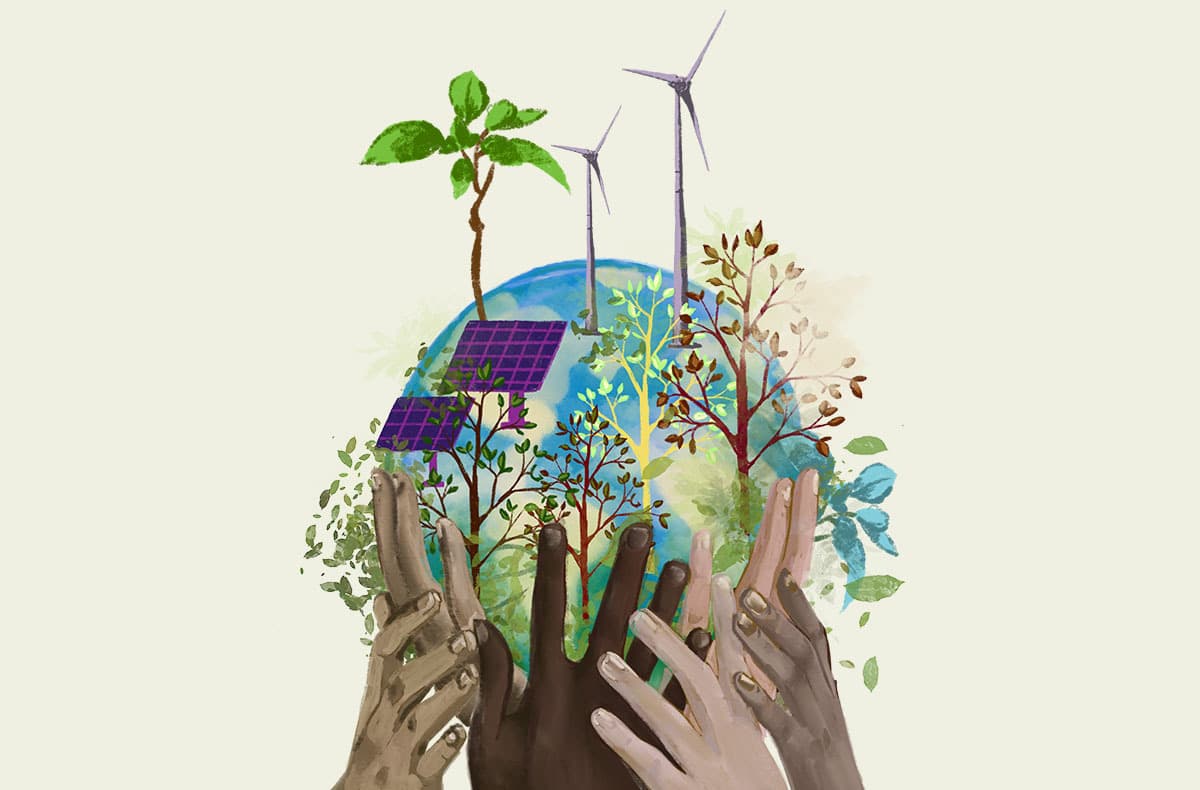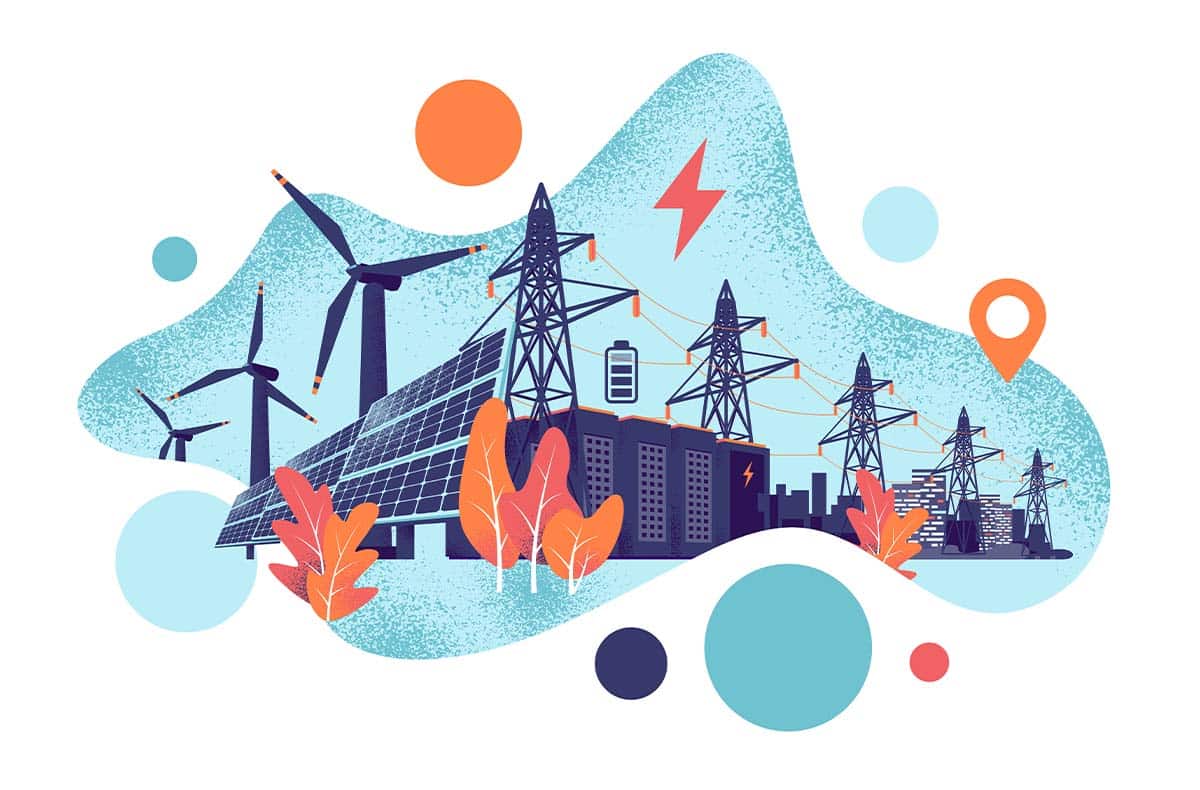
In 1984, writing about the Vietnam War, historian Barbara Tuchman defined “Wooden-headedness” in statecraft as “assessing a situation in terms of preconceived fixed notions while ignoring or rejecting any contrary signs.” The book in which this assertion appeared, March of Folly, was about a number of grave lapses in judgment, ranging from why the Trojans let the Greeks and their horse within their gates to why the Pope so gravely underestimated the threat the Reformation posed to the Catholic Church’s authority. Broadly, the book asks why governments pursue policies that, ultimately, are not in their own best interests. From where I stand, Tuchman may as well have been writing about the failure of American businesses to cope with climate change. Business leaders, it seems, eschew adaptation and acceptance of reality at every turn. This is my attempt to explain why.
When the world changes and we don’t have a new mental model that accommodates it, we are led to folly. However, creating that new model requires an open-mindedness often in short supply—and inherently difficult for humans, creatures whose survival instincts are rooted in habit, seeking certainty. When humans think they are being rational, they are usually just making models that twist a situation around to make it make sense in the context of what is familiar to them. What Tuchmaman called “wooden-headedness” is behind every huge business failure from the so-called Quartz Crisis that nearly wiped out the Swiss watchmaking industry to the downfall of Kodak. In such instances, companies used their own lived experiences as mental models, ignoring the information content of events in a rapidly changing world. They were unable to see the new developments and extremes and exposed themselves to ruin. Representations of the world hold, so as long as they work, but when quartz takes over from mechanical timekeeping or digital photography surpasses analogue, we need a new model—one that either is broadened to accommodate new realities or one reworked to acknowledge a fundamental change.
Even more urgently than new technology in film and watches, the facts of climate change are undeniable. So, how is it that businesses all over the world see the facts and ignore them? The auto industry is only just beginning to rid itself of internal combustion engines. To understand why it’s taken so long to go electric, we need to examine a way of seeing the world that stretches all the way back to the Eisenhower administration. After WWII, Eisenhower funded the Interstate Highway System to mimic the Germans’ Autobahn and have a way to move military equipment and materiel around the country. Thus, the inter-state trucking industry was born and, additionally, the auto industry ramped up sales to American consumers as the postwar population moved around the country (including to the Sun Belt, a move facilitated by air-conditioning, another massive energy consumer). At the time, the country ran on American oil and natural gas, so all profit was domestic. But, when easily extracted energy supplies were exhausted, America became embroiled in the Middle East’s conflicts. Once extraction methods improved and American energy supplies could be mined again, America resumed degrading its own environment and only ramped up emissions that contributed to climate change globally.
In every step of this tale, we see how Americans specifically and humans generally love the short view: the connection between the successes of the auto industry and the degradation of the environment wasn’t as clear unless you lived next to an oil refinery or in Los Angeles’ basin. We happily looked the other way, come hell, high water, or even war. Until you make those externalities a real cost you don’t respond. The first electric car was invented in 1890, yet it took Tesla shaking up the market for GM and Ford to pledge to produce an electric model—and Ford won’t be mostly EV until 2035. The tale of the natural gas industry is similar: consumption of CH4 is incredibly injurious to the environment through the production of CO2, and a leak is exponentially more injurious with a global warming potential of 86 times that of CO2 over 20 years. Yet, the natural gas industry has convinced itself that they are not merely not a part of the problem but even that they are part of the solution. We hear executives herald the virtues of “renewable gas” when really it’s just the equivalent of “clean” coal: a surefire path to more climate impact.
Fundamentally, human beings act on the belief that when extreme events happen such as super storms, mega droughts, or the impact of a polar vortex, eventual reversion to the mean will protect them from harm and the need to change. They cannot help but apply old systems of understanding to novel crises. The acronym VUCA (i.e., volatile, uncertain, chaotic, and ambiguous) is having a moment right now. But, here’s the thing: the world has always been VUCA. Simply put, if you think something is an outlier event, you don’t plan your life around it. The VUCA designation is simply the norm in the real world, but the question remains: when do the elements affect you, and what must you do to prepare? We need to push past confirmation bias. For example, no one can know the exact timing of a polar vortex but we need models that effectively rationalize that it can happen, and act accordingly.
The point is not prediction, but rather about being able to field a variety of consequences. It’s about survival, not seeing around corners. Risk management has only been a business subspeciality for roughly the last 20 years. Its growth as a field has taught CEOs that they need the right tools to correctly identify risk. However, identifying risk is not the same thing as accepting a new norm. Nassim Taleb made waves with his notion of the Black Swan in 2001, but he himself was eager to point out that Covid was, in fact, a White Swan. A pandemic was not a freak event, but an eventuality given our interconnectedness and the increased volatility that it brings. Climate is, at base, a chaotic system. Continuing to perturb initial conditions promises exponentially more volatility. In their book Climate of Hope, Michael Bloomberg and Carl Pope quote Jason Box, professor of glaciology at the Geological Survey of Denmark and Greenland, who wrote, “It’s really quite simple. We’ve over-loaded the atmosphere with heat-trapping gas and the rest are just details.”
More tellingly, climate change does not motivate capital. Citigroup has committed itself to net zero emissions, but when is a company’s sustainability report going to carry the same import and weight as its annual financial report? As we see the greening of supply chains, labeling becomes important, branding is a statement—but when will sustainability mean power in the marketplace? Will companies be able to skirt the dangers of both misleading their customers and deluding themselves about their goals in the process? Consumer choice isn’t the driving factor here: consumers don’t necessarily have choice and regulators cannot legislate fast enough and re-regulate. Given our economy, it is obvious that the solution needs to be profit-motivated. Investors and CEOs must solve this both for the good of our planet and, frankly, for the good of every system on it, manmade and natural. Addressing climate change is going to be a matter of valuing good practices and devaluing bad ones so that all consumer choices available are good ones. On a corporate level, this means attending to sustainability as it applies to tangible goods, operations, culture, and resources.
However, before we can incentivize sustainability and successfully translate it into economic impact, we need to program against risk so that we can survive existentially and, in the meantime, our businesses and infrastructure can withstand our increasing exposure to our chaotic planet. We need to better understand where things might go wrong so that we can strive for more targeted investing. For instance, more granular knowledge available from satellites would allow us to understand better the potential for forest fires. But, more fundamentally, the sustainability of the profit investors are able to garner is existentially threatened if the world is on fire. If you cannot understand that the planet is under threat, you need to understand that there will be no more economy—due to unemployment, plagues, drought, famine, and flood—if we do not rethink our operations and our concept of the norm. The first step is investing in companies that will still be around, and those are the ones that are sustainable. Those are the ones that will learn to adapt, and reject wooden-headedness.

